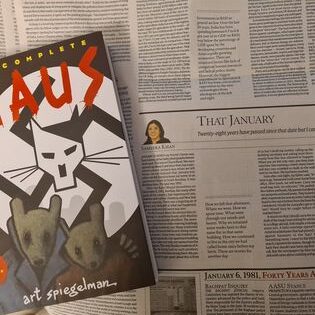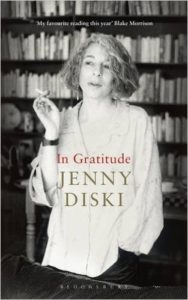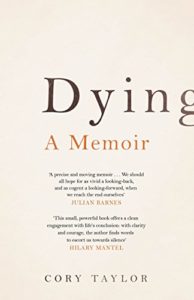 3 May is World Press Freedom Day.
3 May is World Press Freedom Day.
3 May 2015 is also when the unfortunate hashtag #GoHomeIndianMedia is trending on Twitter. The people of Nepal are hugely disappointed with the journalists from India covering the horrendous earthquake. Ironically they seem to have support from many others across the Indian subcontinent. For instance, http://scroll.in/article/724851/your-media-are-acting-like-they-are-shooting-a-family-serial-nepalis-trend-gohomeindianmedia .
Later this week, on 5 May 2015, PEN American Center will be honouring the French newspaper Charlie Hebdo with the PEN/ Toni and James C. Goodale Freedom of Expression Courage Award. It has resulted in six prominent authors dropping out of the PEN Gala, with more than 145 authors distancing themselves from the event. The six authors are Peter Carey, Michael Ondaatje, Taiye Selasi, Teju Cole, Francine Prose and Rachel Kushner. Many opinions have been offered in the press. For instance, Andrew Solomon, President, and Suzanne Nossel, Executive Director, of PEN American Center wrote on 1 May 2015, “Why we’re honoring Charlie Hebdo” ( http://www.nytimes.com/2015/05/02/opinion/why-were-honoring-charlie-hebdo.html?_r=0); Adam Gopnik in the New Yorker, 30 April 2015, “PEN Has Every Right to Honor Charlie Hebdo” (http://www.newyorker.com/news/daily-comment/pen-has-every-right-to-honor-charlie-hebdo ); Masha Gessen in Slate.com on 1 May 2015, ““Paying Attention and Paying Respect Is All That Writers Can Do: Why PEN is right to honor Charlie Hebdo.” (http://www.slate.com/articles/arts/culturebox/2015/05/pen_and_charlie_hebdo_why_the_foundation_is_right_to_honor_the_magazine.html) ; Katha Pollit in The Nation on 30 April 2015 ‘Charlie Hebdo’ Deserves Its Award for Courage in Free Expression. Here’s Why.” ( http://www.thenation.com/blog/205897/charlie-hebdo-deserves-its-award-courage-free-expression-heres-why); Salil Tripathi, Writer and former co-chair, English PEN Writers-at-Risk Committee wrote about the courage it takes to write without fear and importance of freedom of expression. ( http://www.pen.org/blog/courage-continuing); Garry Trudeau’s speech in The Atlantic, 11 April 2015, “On the abuse of satire” ( http://www.theatlantic.com/international/archive/2015/04/the-abuse-of-satire/390312/); Susan Bernofsky on 1 May 2015 in Translationista”Why I signed the PEN protest letter” ( http://translationista.net/2015/05/why-i-signed-the-pen-protest-letter.html) and Joe Sacco in the Guardian on 9 January 2015, “A response to the Charlie Hebdo attacks” ( http://www.theguardian.com/world/ng-interactive/2015/jan/09/joe-sacco-on-satire-a-response-to-the-attacks).
Closer home, in India, we have for the past eighteen months had innumerable instances of muzzling of voices, authors such as Perumal Murugan, being coerced in such a manner that he has vowed to give up writing. Here is an excellent speech given by noted historian Romila Thapar on religious sentiments and freedom of expression, published in the Hindu on 13 March 2015, “The Real Reasons for Hurt Sentiments” (http://www.thehindu.com/opinion/op-ed/the-real-reasons-for-hurt-sentiments/article6987156.ece). Like him, there are many more sad examples.
In this context it is worth reading a brilliant essay, “Free Speech” by British philosopher A.C. Grayling. I am reproducing extracts of it below but the entire essay can be read in A. C. Grayling “The Challenge of Things: Thinking Through Troubled Times”, published by Bloomsbury. Many of the essays originated in places as various as Prospect magazine, the Guardian, Observer, Times, New Statesman, New York Review of Books, talks on the BBC, chapters in edited collections, and elsewhere. Unfortunately there are no dates given for the published essays, so it is impossible to gauge the time they were written in. Yet, the essay under discussion seems pertinent even today.
…though liberty is indivisible, regimes of liberties have a structure. The keystone of the arch is free speech. Without free speech one cannot claim other liberties, or defend them when they are attacked. Without free speech one cannot have a democratic process, which requires the statement and testing of policy proposals and party platforms. Without free speech one cannot have a due process at law, in which one can defend oneself, accuse, collect and examine evidence, make a case or refute one. Without free speech there cannot be genuine education and research, enquiry, debate, exchange of information, challenges to falsehood, questioning of governments, proposal and examination of opinion. Without free speech there cannot be a free press, which although it always abuses its freedoms in the hunt for profit, is necessary with all its warts, as one of the two essential estates of a free society ( the other being an independent judiciary). Without free speech there cannot be a flourishing literature and theatre. Without free speech there are limits to innovation and experiment in any walk of life. In short and in sum, without free speech there is no freedom worth the name in other respects where freedom matters.
…
The principle of freedom of speech promiscuously allows bad free speech, ranging from the stupid to the malicious and dangerous. If it is genuinely dangerous to life, as for example in direct incitement to murder, it invites a case-specific limitation. But generally the remedy for bad free speech is better free speech in response. In the case of libel and slander there is, as an instance of this, the post facto remedy of the courts. True, malicious mud-slinging is damaging even if a libel action is won, but free speech does not come free, and in a mature society we have to recognise that benefits carry costs, and this is one of them. So vital is free speech to the health and liberty of a society that the plea of ‘feeling offended’ by what people say about one’s choices and beliefs is not and can never be a reason for limiting free speech…. .
…
…The assault on free speech is well under way: it is the time for defence of it to get well under way too. ( p. 172-174)
A.C.Grayling The Challenge of Things: Thinking Through Troubled Times Bloomsbury, Great Britain, 2015. Pb. pp.300 Rs499
( This blog post was updated on 4 May 2015 to include a few more links on Charlie Hebdo.)
#GoHomeIndianMedia
#GoHomeIndianMedia





